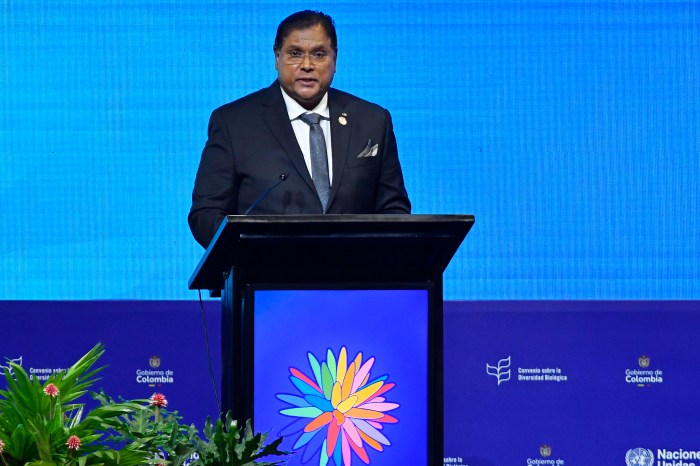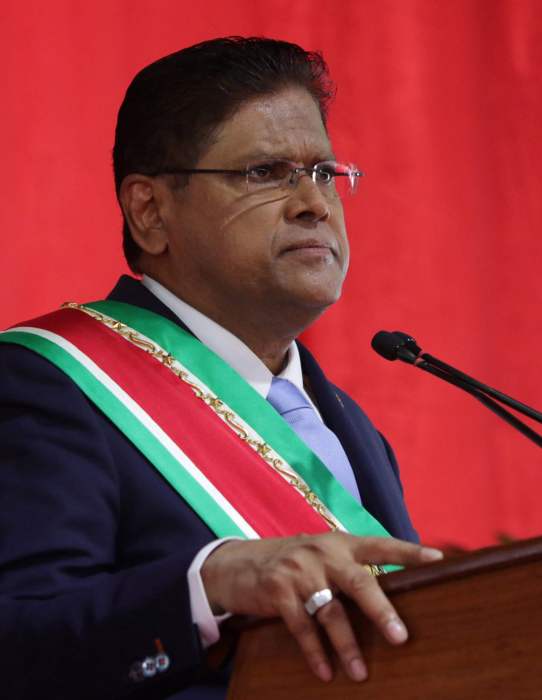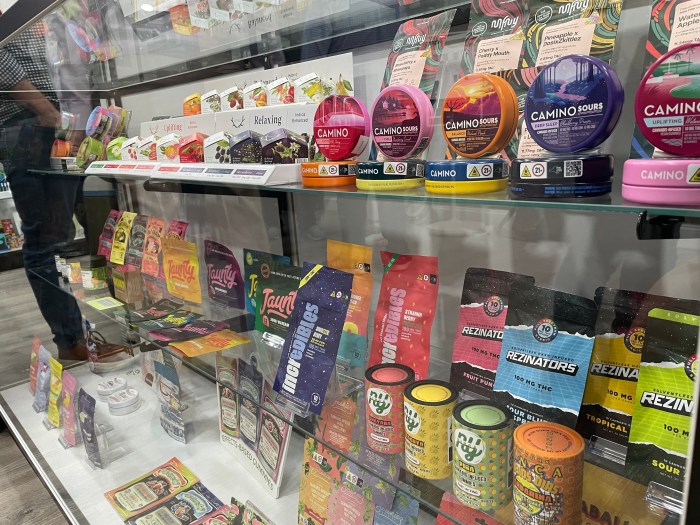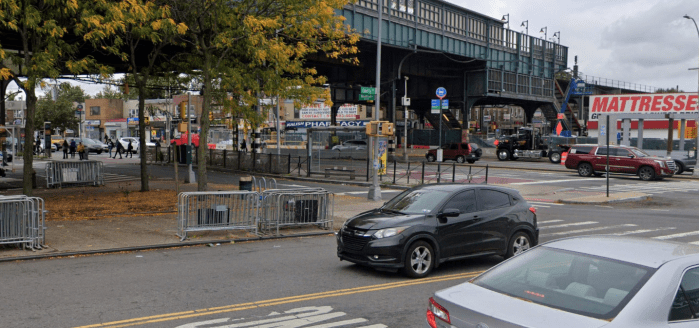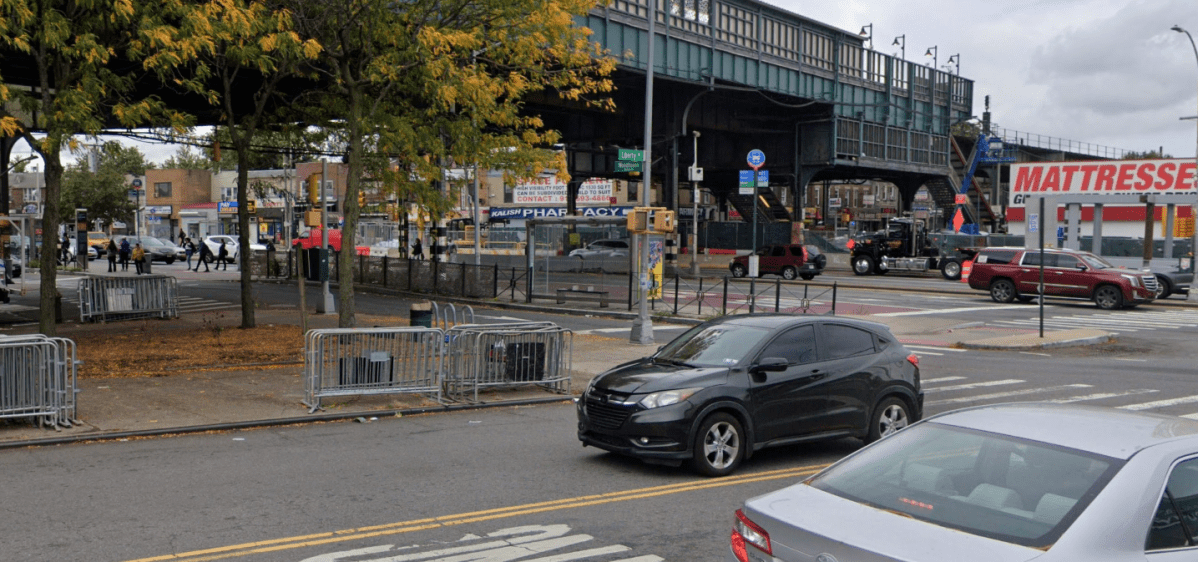Suriname is experiencing labor — and political — pains again.
Like they did Just like they did when former Suriname military strongman Desi Bouterse’s National Democratic Party (NDP) dominated a coalition government at the close of the 1990s, political opposition, labor and civil society are once again ganging up on his administration, protesting what they say are unbearable living conditions.
Nearly 20 years ago, dissidents forced Bouterse to call early general elections — which he lost —after the nation’s plunged into debt as authorities overspent by millions while constructing two magnificent, fixed river bridges that made access to the west and eastern districts much easier than before.
Now, thousands of protestors are back on the streets of Paramaribo, the capital city of the Dutch-speaking Caribbean trade bloc nation, railing against a clear decline in living standards as the country has again run out of cash under NDP leadership.
On Tuesday, heavily-armed police rounded up and arrested several labor leaders at the helm of daily street demonstrations calling for improved living and working conditions.
The latest round of protests, which some leaders have said are aimed at again toppling an NDP-led government, were sparked by an official increase in the price of gasoline and the refusal of authorities to meet demands for salary increases.
The ruling cabinet has said that it has no money to meet worker demands, largely because of the stark drop in prices for the main export commodities in recent years.
The Suriname dollar has been devalued by close to 70 percent, drastically boosting prices for food and other basics and severely reducing spending power. Some shops have closed and the difficulty in obtaining foreign currency has forced others to scale back their hours and days of operation.
In addition, many Guyanese who moved east to Suriname in the 1980s when that country’s economy had tanked to an even worst stage than Suriname’s, are headed back home and the large influx of Brazilians panning for gold has reduced as the economy continues its tailspin.
Local police have since released the labor leaders they arresrted, but most of the opposition parties in the country and many in the merchant sector are now openly calling for their members to join the street protests, shopkeepers to close doors and workers to down tools and take to the streets.
A government statement issued late Tuesday said authorities “regret” the clashes with police earlier in the day and urged calm as “we do not benefit from turmoil, because there will be only one loser, namely our beloved country Suriname. It is important to emphasize again that all channels of communication for everyone and all groups are open.”
As they have been unable to generate the cash it needs to run the country, authorities have already dipped into Central Bank reserves and have borrowed $478 million from the International Monetary Fund. A billion dollar-plus loan from the Islamic Development Bank is yet to be disbursed as government has to meet agreed conditions.
In the meantime, the dollar continues to weaken and the intensity of the protests have forced the energy ministry to cancel another planned fuel price increase.
General elections are not due for at least another three years but with the memory of the late 1990s — when Bouterse was forced to go to the polls early and lose — still fresh in the minds of many, critics sayd he may well be forced to do so again if living conditions do not improve.


